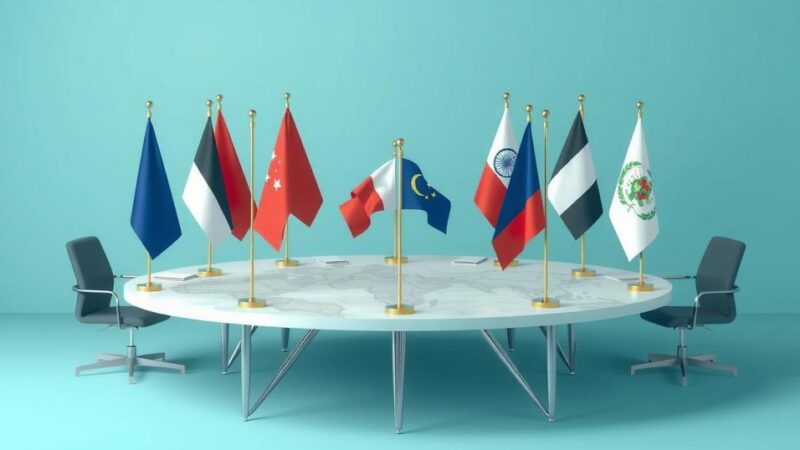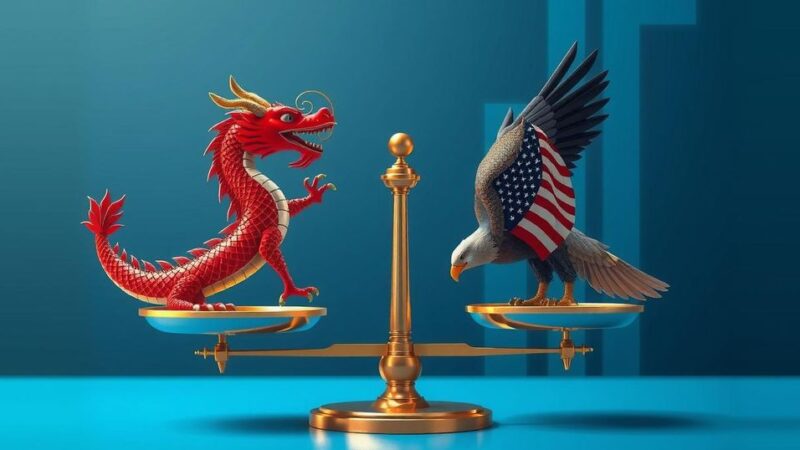Since 2003, Iraq’s Shiite factions have increased in power yet remain fragmented due to internal rivalries and external influences from the US and Iran. The 2021 elections showcased this division, especially with Muqtada al-Sadr’s rising influence. As Iraq prepares for the 2025 elections, shifting alliances and strategic maneuvers underscore the dynamic political landscape, with potential key players vying for control.
Since the fall of Saddam Hussein in 2003, the political landscape of Iraq has undergone significant transformation, characterized by the rise of Shiite political parties. Nevertheless, this political ascendancy has been fraught with instability, marked by fragmentation and intense rivalries among factions, influenced by external actors such as the United States and Iran. Consequently, Iraq’s prospects for the future remain precariously poised.
The roots of the fragmentation within Iraq’s Shiite political community can be traced to the collapse of Saddam Hussein’s regime. The Sunni-led Ba’athist rule subjected Shiite groups to political oppression and exile, particularly in Iran. Post-2003, Shiite factions, including the al-Dawa Party and SCIRI, gained substantial influence, yet ideological discrepancies and power struggles among them led to significant disunity. Alliances formed around aligned interests, yet this did not yield a cohesive political front.
The 2021 Iraqi parliamentary elections illuminated the widening rifts within Shiite factions. Muqtada al-Sadr’s Movement emerged prominently, capturing 73 seats, thereby establishing his strength over traditional parties like Nouri al-Maliki’s coalition, which suffered a decline, falling to just 33 seats. This electoral outcome is viewed as a notable shift in the power dynamics of Iraqi politics, with analysts suggesting it reflects public discontent with existing leadership.
Al-Sadr’s subsequent decision to withdraw his MPs from Parliament in June 2022 exacerbated political fragmentation, providing the Coordination Framework an opportunity to strengthen its control over the government. Al-Sadr’s stance against participating in a corrupt system highlights the pervasive disillusionment with the entrenched political order, displaying a shift towards independent voices in governance.
As the internal landscape shifts, figures such as Prime Minister Mohammed Shia al-Sudani are navigating these changes adeptly. Al-Sudani’s rise is attributed to his pragmatic approach to governance and the promise of reform, appealing to both Shiite and Sunni populations dissatisfied with political stagnation. His position illustrates a potential challenge to entrenched power figures, indicating a reconfiguration of Iraq’s political status quo.
Heading into the 2025 parliamentary elections, the atmosphere is charged with possibilities as key players like al-Sadr and al-Maliki vie for influence, while the Coordination Framework grapples with internal divisions. Preparations for these elections underscore the importance of a unified strategy, as political parties currently engage in preliminary discussions ahead of the expected competition.
According to analysts, numerous outcomes are possible as Iraq inches closer to the elections. Al-Sadr’s possible return could realign the political landscape, presenting fresh challenges to existing powers. Conversely, the Coordination Framework has the opportunity to consolidate its influence if it can negotiate divisions among its factions. Meanwhile, al-Sudani’s pragmatic approach may grant him a significant role in shaping future governance, notwithstanding the potential backlash from established political forces.
In summary, the political landscape of Iraq is marked by fragmentation among Shiite factions, resulting in a complex interplay of alliances, rivalries, and external influences. As the country approaches the 2025 elections, the potential resurgence of leaders like Muqtada al-Sadr, the consolidation efforts of the Coordination Framework, and the pragmatic governance approach of Prime Minister al-Sudani will significantly impact Iraq’s political future. The ability of these factions to navigate their divisions and form cohesive strategies will be critical for stability and progress.
Original Source: shafaq.com






